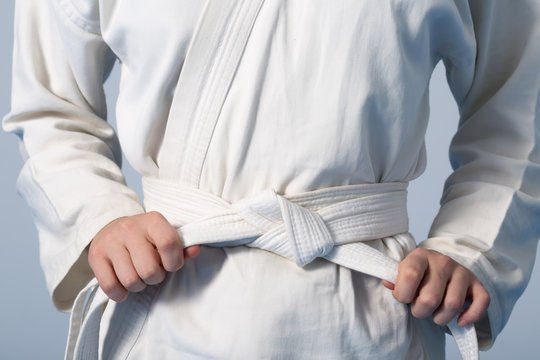Maximizing Your First Martial Arts Lesson: Tips and Tricks
- Justin Lee Ford
- Sep 29, 2023
- 4 min read

If you're considering taking martial arts lessons for the first time, congratulations! You're about to embark on a journey that can improve your physical fitness, mental toughness, and self-defense skills.
But wait! Before you step into your first martial arts class, there are a few important things you need to know. Let’s explore the essential tips you’ll need in order to kick butt in your first martial arts lesson.
Recovery Tips Martial arts training can be intense, and it's not uncommon to feel sore after your first class. Or second. Or hundredth.
Here are a few recovery tips to help you bounce back: Hydrate: Make sure you drink plenty of water before, during, and after your class to help your muscles recover. Water is essential to keeping your muscles hydrated and your body functioning properly. Dehydration can lead to cramps, fatigue, and other not-so-fun problems, so make sure you're drinking enough water.
● Stretch: Stretching before and after your class can help prevent soreness and injury. Dynamic warm-up stretches help loosen up your muscles and get them ready for activity, while cool-down stretches (especially static) can help prevent tightness and soreness. Common culprits you’ll want to stretch after training are your legs, hips, and shoulders. ● Rest: Give your body time to rest and recover after your class. I know, I know...this isn’t an exciting tip. We all want to go hard and look like a badass as soon as possible. Avoid overexerting yourself in the days after your first lesson however. Get plenty of sleep and eat a healthy diet to help your muscles recover. Don't worry if you're sore after your first class; it's a sign that your muscles are adapting to the new activity.
Pacing Yourself
It's important to pace yourself during your first martial arts class. While you may be eager to jump right into the action, it's important to listen to your body and take breaks as needed.
Remember, martial arts is a marathon, not a sprint. An injury will only hold you back longer than a moment of proper rest would last. Here are a few tips to help you pace yourself:
Take breaks: If you feel like you need to rest, take a break–otherwise, your body will likely find a way to break. Don't push yourself too hard too fast. Listen to your body and give it the rest it needs to recover.
Listen to your instructor: Your instructor will guide you through the class and can help you pace yourself. They'll be able to help you adjust your pace if you're going too fast or too slow. It is anxiety and ego that often accelerates our actions faster than we can keep up with. Keep concentrating on your instructor’s guidance and follow their leads appropriately.
Start slow: It's okay to start slow and gradually build up your intensity. Focus on technique and form rather than speed and power. Learning the correct technique is more important than doing things quickly. Once you've mastered the technique, then you can gradually increase your speed and power.
Absorbing Information like an Expert
Martial arts classes can be overwhelming, especially if you're learning new techniques and terminology (or even a whole new language). Here are a few tips to help you absorb information like an expert:
Ask questions: Don't be afraid to ask questions if you don't understand something. Your instructor and classmates are there to help you learn. If you're not sure about something, ask your instructor to explain it again. They'll be happy to help you understand. Better to be seen as a fool for a day due to asking a question than to remain a fool forever due to never asking it.
Take notes: If your instructor allows it, take notes during class to help you remember important information. Writing down the techniques you've learned and any tips your instructor has given you can help you remember them later. If you don't have a notebook handy, you can use your phone or tablet to take notes. Even better, record yourself teaching the camera what you’ve learned. This better locks in the information.
Practice: It goes without saying, but it is still worth mentioning–practice the techniques you learn in class outside of class to help reinforce your learning. The more you practice, the more natural the techniques will become. I’m not talking about moving without thought however. Pay attention to every action, big and small, which you take. This concentration will elevate your ability to lock in the info.
Practicing Outside of Class
Speaking of practice, here are a few tips to help you make the most of your training time outside of class:
Make a plan: Create a practice plan that includes the techniques you want to work on, how many repetitions you want to do, and how long you want to practice. Having a plan can help you stay focused and make the most of your practice time. This helps prevent the common problem of self negotiating–the act of listening to that voice in your head whispering that you don’t need to get out of bed and
Be a part of your community: Lean into one of the best resources for absorbing your teacher’s lessons, your fellow classmates. Discuss ideas with them before or after class, meet up to train together, and stay connected. Aside from gaining the support of a community, you may make new friends who help challenge you better than anything else.
Stay motivated: Martial arts can be challenging, and it's easy to get discouraged if you don't see progress right away. Set goals for yourself and track your progress. Celebrate your successes, no matter how small they may be. And remember, progress takes time and effort. It’s a cliché but enjoy the journey!